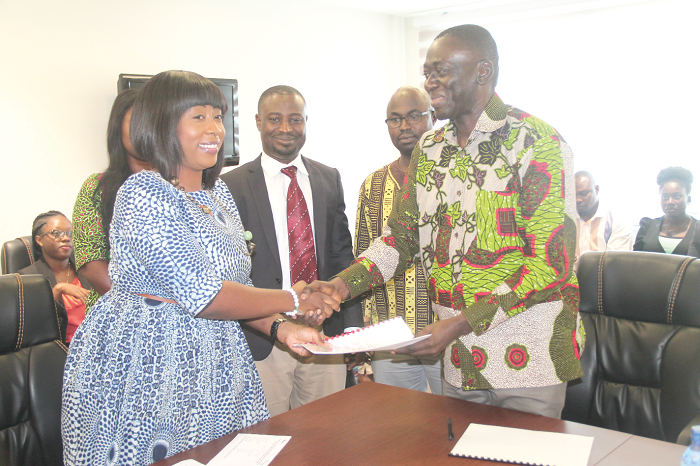
Two bodies partner to recruit 500 graduates for digital inclusion programme
The Ghana Investment Fund for Electronic Communications (GIFEC) and the Youth Employment Agency (YEA) yesterday signed a memorandum of understanding (MoU) to recruit 500 graduates for the roll out of the fund’s Digital for Inclusion programme.
Advertisement
Four towns and villages in the Ashanti and the Western regions have been selected for the piloting of the project, which seeks to bridge the rural-urban digital divide.
As part of the project, the towns — Berekum and Goaso in the Brong Ahafo Region and Asangrakwa and Asumura in the Western Region -- will be provided with Wifi at subsidised rates to promote e-commerce and agricultural extension and for digital financial services.
The criterion for selecting communities for the pilot is mainly communities that are digitally unserved or under-served.
Pilot
After the piloting at the end of this year, the programme will be upscaled to 30 communities across the country from the second quarter of next year.
The partnership, through the YEA’s Graduate Internship Programme, will enable the GIFEC to deploy skilled human resource to man its offices and community information centres and projects across the country.
The graduates will be given the needed training for them to acquire skills and knowledge as part of a larger project to make almost all Ghanaians ICT literate.
Universal access
At the MoU signing ceremony in Accra yesterday, the Administrator of GIFEC, Mr Abraham Kofi Asante, said it found the partnership with the YEA had formidable programmes that could roll out the human resource needed to bridge the country’s digital divide.
“We are not looking at ICT for the elite but building a society where all and sundry can have access to ICT. We want to have universal access.
“If it is going to be universal, it means the person should have the skills to be able to use the devices.
“As GIFEC provides the technologies, we need people who are also technologically apt to be able to carry out this assignment,” he said.
Mr Asante said the people who would be deployed for the project would be the focal point, creating awareness of and disseminating information to the populace.
“You cannot provide ICT without creating the awareness and having the human resource to engage with the people. They will be equipped with knowledge and skills to explain the objectives of the institutions,” he said.
Currently, there are 130 community information centres across the country which serve as community ICT centres to help bridge the digital divide between rural and urban Ghana.
Accessible ICT
The Deputy Chief Executive of the YEA in charge of Finance and Administration, Ms Lydia Atiemo, said the agency was excited about the partnership to make ICT accessible to every community and household.
“It will provide interns with the platform to have new experiences and give them the relevant work experience for career progression.
“It will afford the agency the opportunity to expand its job creation effort, as we look forward to Ghana becoming a smart community nationwide,” she said.



